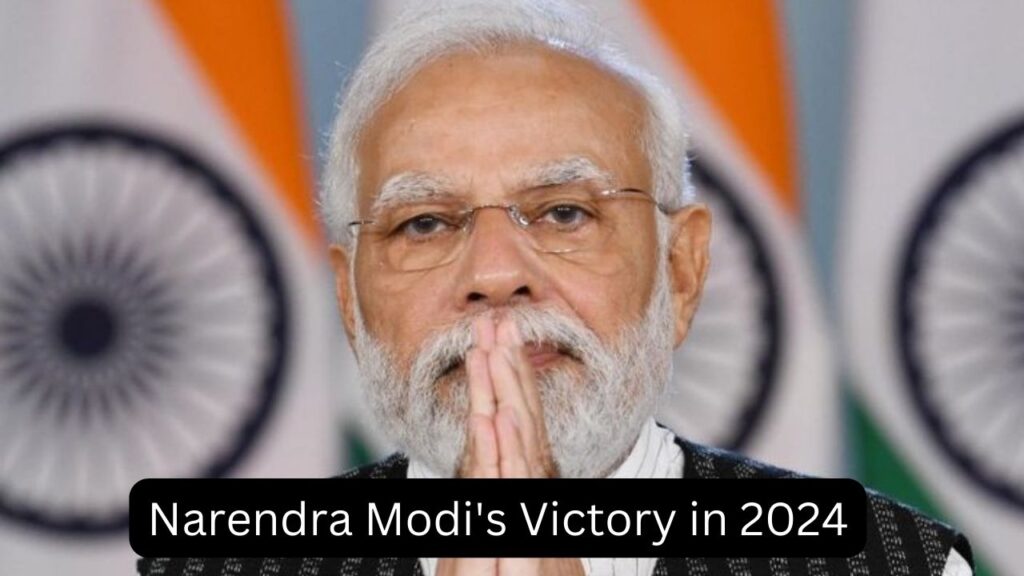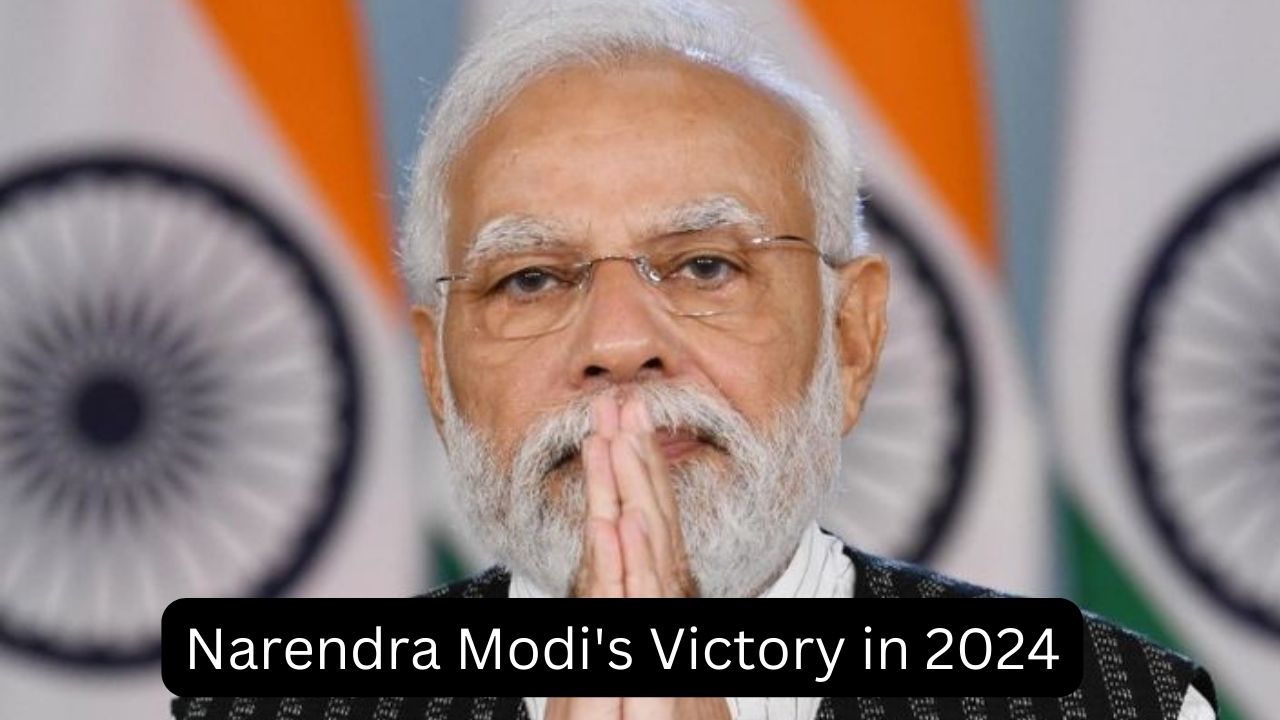
Table of Contents
As India gears up for the 2024 general elections, Prime Minister Narendra Modi and his party, the Bharatiya Janata Party (BJP), are once again at the forefront of the political landscape. Modi’s previous terms have been marked by significant economic reforms, technological advancements, and a robust foreign policy. His leadership style and vision for India continue to resonate with a large segment of the Indian populace. This article delves into the factors that could lead to Modi’s victory in 2024, examining his policies, political strategies, and the socio-political context of India.
Strong Leadership and Governance of Narendra Modi
Narendra Modi’s tenure as Prime Minister has been characterized by a strong and decisive leadership style. His ability to make bold decisions, such as the demonetization policy in 2016 and the implementation of the Goods and Services Tax (GST) in 2017, has solidified his image as a leader willing to take risks for long-term benefits. While these decisions have faced criticism and posed challenges, they also reinforced Modi’s commitment to transformative governance.
Economic Reforms and Development Initiatives
Economic development has been a cornerstone of Modi’s administration. The “Make in India” initiative, launched in 2014, aimed to transform India into a global manufacturing hub, encouraging both domestic and foreign investments. The initiative has led to increased foreign direct investment (FDI) and the creation of numerous jobs.
The introduction of GST was another landmark reform intended to unify India’s complex tax structure. Despite initial implementation challenges, GST has streamlined tax collection and increased transparency. Modi’s government has also focused on infrastructure development, with projects like the Bharat Mala Pariyojana and the Sagarmala initiative aimed at improving road and port connectivity, respectively.
Social Welfare Programs
Modi’s administration has launched several social welfare programs that have had a significant impact on the lives of millions of Indians. The Pradhan Mantri Jan Dhan Yojana, aimed at increasing financial inclusion, resulted in the opening of over 400 million bank accounts. The Ujjwala Yojana, which provided free LPG connections to women from below-poverty-line households, has improved health outcomes and reduced indoor air pollution.
The Ayushman Bharat scheme, touted as the world’s largest government-funded healthcare program, aims to provide health insurance to over 500 million citizens. These initiatives have not only improved the standard of living for many but have also strengthened Modi’s appeal among the masses.
Digital India and Technological Advancements
Modi has been a strong proponent of leveraging technology for governance and development. The Digital India campaign, launched in 2015, seeks to enhance internet connectivity and improve online infrastructure, making government services more accessible. The promotion of digital payments and the implementation of the Aadhaar biometric identification system have been pivotal in reducing corruption and streamlining service delivery.
Foreign Policy Achievements
Under Modi’s leadership, India’s foreign policy has seen a renewed focus on strengthening ties with major global powers and neighboring countries. Modi’s numerous foreign visits and participation in international forums have raised India’s profile on the global stage. Key achievements include improved relations with the United States, strategic partnerships with Japan and Australia, and increased engagement with the ASEAN countries.
The Act East Policy, aimed at strengthening ties with Southeast Asian nations, and the Neighbourhood First Policy, focusing on improving relations with neighboring countries, have been significant aspects of Modi’s foreign policy. These efforts have not only enhanced India’s strategic position but also attracted foreign investment and economic cooperation.
Political Strategy and Campaigning
Modi’s success can also be attributed to his effective political strategy and campaigning skills. The BJP’s organizational strength, combined with Modi’s charismatic leadership, has played a crucial role in securing electoral victories. The use of social media and digital platforms to reach out to voters has been a game-changer in Indian politics. Modi’s ability to connect with people through his speeches, rallies, and Mann Ki Baat radio program has kept him in direct touch with the electorate.
The BJP’s focus on grassroots mobilization and its network of dedicated party workers have ensured effective implementation of campaign strategies. The party’s emphasis on local issues and targeted outreach to various communities have bolstered its support base.
Challenges and Controversies
While Modi’s tenure has seen significant achievements, it has not been without challenges and controversies. The handling of the COVID-19 pandemic, particularly during the second wave in 2021, faced criticism due to the overwhelmed healthcare system and shortages of medical supplies. The economic slowdown and rising unemployment have also posed significant challenges.
Policies like the Citizenship Amendment Act (CAA) and the abrogation of Article 370, which granted special autonomy to Jammu and Kashmir, have sparked protests and raised concerns about religious and regional tensions. Critics argue that these policies undermine India’s secular and democratic fabric, while supporters view them as necessary for national security and integration.
Opposition Landscape
The 2024 elections will also be influenced by the state of the opposition. The Indian National Congress, the principal opposition party, has struggled with leadership and organizational issues. Rahul Gandhi, a key leader of the Congress, has faced challenges in galvanizing support and presenting a coherent alternative to Modi’s leadership. Regional parties like the Trinamool Congress, led by Mamata Banerjee, and the Aam Aadmi Party, led by Arvind Kejriwal, have shown strength in their respective states but face hurdles in expanding their influence nationally.
Conclusion: Prospects for 2024
As India approaches the 2024 general elections, Narendra Modi’s chances of securing a third term appear strong. His decisive leadership, economic reforms, social welfare programs, and effective campaigning have garnered significant support. However, the outcome will depend on various factors, including the BJP’s ability to address economic challenges, manage social tensions, and maintain its political strategy.
Modi’s vision of a “New India” continues to resonate with many, but the evolving socio-political landscape will play a crucial role in shaping the electoral outcome. The BJP’s organizational strength, combined with Modi’s leadership, positions him as a formidable contender. Nevertheless, the opposition’s ability to present a united and compelling alternative will be a critical determinant in the 2024 elections.

